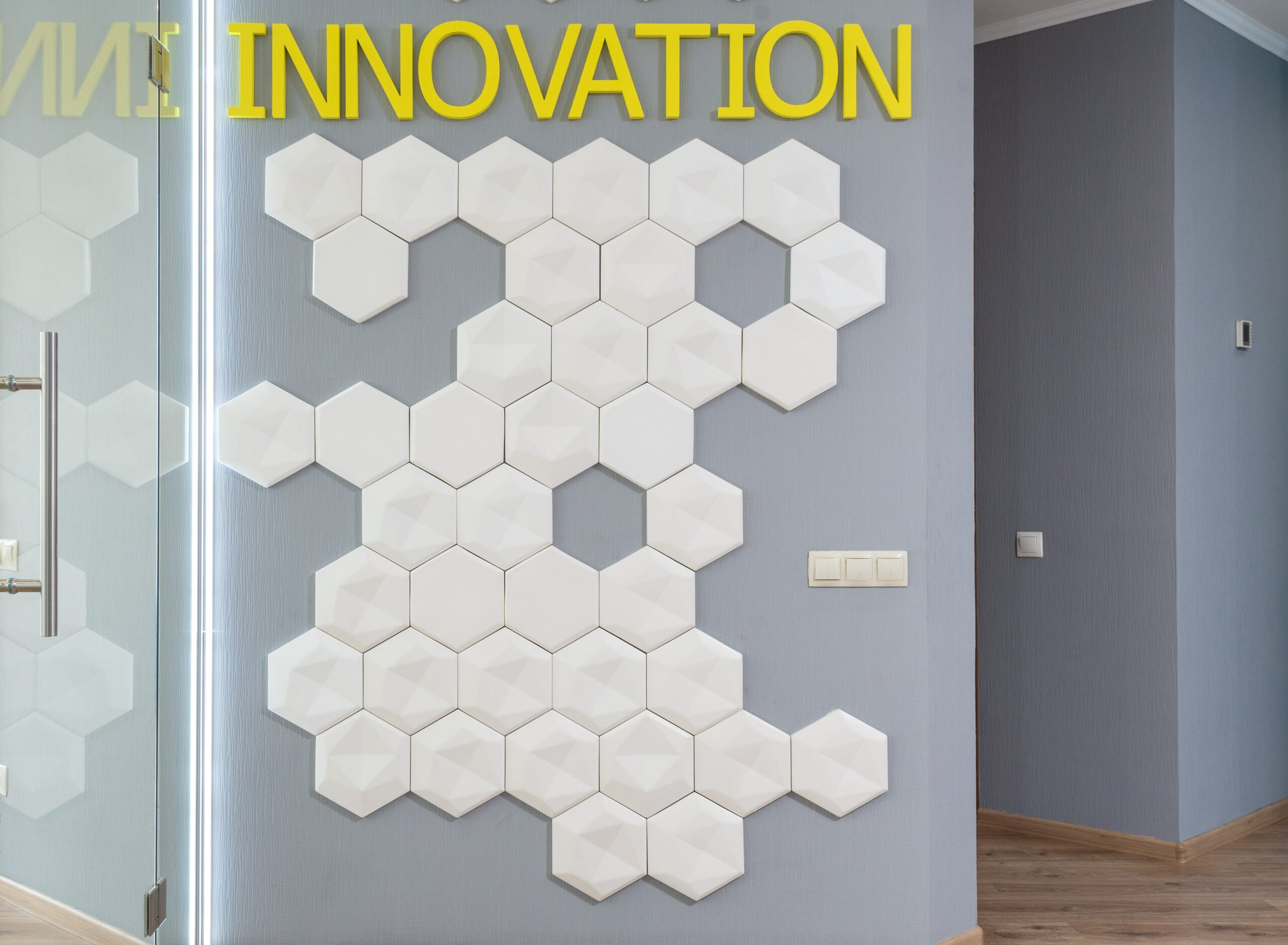In this article, Anja Karliczek writes about the chances of digitization in the school system in Germany. In particular, she elaborates on the discussion if the leap into the digital age can be made with education and research and what is necessary on top of this.
Recently I visited Möckern, a small town in Saxony-Anhalt. There, many pupils no longer have to carry books into class. Instead, they use tablets and learn online. Smartboards hang in the rooms. It’s been a long time since anyone’s seen a blackboard or a sponge. „Chalk-free“ is what this is called in teacher jargon.
Speaking of teachers. They are decisive for the children’s learning success. With or without chalk. The digital classrooms will help them, even with very practical questions: If the students have to vote on the destination for the next school trip, then no more hands have to be raised and counted – in Möckern the vote is counted with an app.
At the school I visited, digital learning is self-evident. In tests and exercises, for example, the pupils discuss in a forum: What is the right solution? What would be the wrong answer? In this way, teachers can immediately see who has already understood the new material in class.
Möckern is still only a model project. But we are working to ensure that all schools in Germany will soon be equipped for the digital future. Our education system is about to take decisive steps towards further development – not only with regard to nationwide digital equipment but above all with regard to digital competencies. Only those who are digitally mature can take advantage of the opportunities offered by the new world.
We need digital education not only in schools but also in universities and even more so in vocational training. And even in old age, learning remains crucial. Qualification and further training are the keys to being able to survive in the digitalised world; this applies just as much to the geriatric nurse in Cologne as to the chimney sweep in Dresden. And certainly also to the ski lift operator in a Swiss holiday resort. And yet we still don’t really know what skills will be important in ten- or twenty years‘ time, how exactly our work will change. What we need is a real training culture.
We have a promise – „prosperity for all“, and it comes from Ludwig Erhard. His policy of social market economy has taken us far. Germany is currently in a good position. The employment rate is high, the unemployment rate is low and the social security systems are strong. In the autumn of last year, the famous World Economic Forum, which is based in Switzerland, even named us world champion in its highly regarded report on global competitiveness: Nowhere else in the world the ability to innovate is greater, the experts judge, no other country controls the process from brainstorming to product marketing so well. This is particularly evident in the number of patents filed and scientific publications, but also in customer satisfaction with the products. Of course, we were happy about that.
But these are not laurels we rest on. Global competition is becoming faster and more intense. We live in a country with few resources and we amount to only one percent of the world’s population. How can we maintain our prosperity in the face of globalisation and digitisation? This is a question that many people in Switzerland are certainly also asking themselves. The answer is clear: education and research will help us make the leap into the digital age. In addition, we must network closely with others – above all with our European community.
Therefore, we have significantly increased our investments in education and research. When Angela Merkel became Federal Chancellor in 2005, the budget of the Federal Ministry of Education and Research was almost ten billion euros. This year, in 2019, we are investing 18.3 billion euros. The figures speak for themselves – and clearly show where our priorities lie.
An important example is our strategy for artificial intelligence (AI). This new technology is changing the way we live and work. Algorithms not only tell us which music to listen to and which sneakers to buy, but artificial intelligence also relieves us of heavy work, makes our traffic safer, and helps us generate electricity from wind and sun. It also offers completely new perspectives in medicine: Supplied with the right data, Artificial Intelligence has long been able to identify patterns in disease progressions and infer which therapies promise success.
The potential of machine learning is huge, not only for our economy but for each and every one of us. Because artificial intelligence is increasingly becoming the driver of digitization, the German government has decided to make three billion euros available for its funding by 2025. Our goal is to make Germany and Europe the leading locations for this technology.
Fortunately, we are in a good starting position: For many years now, we have been supporting research into artificial intelligence in Germany. Our research landscape is strong and internationally competitive. But when it comes to quickly turn good research ideas into marketable products, we still have room to improve. We must connect research and practice even more effectively. This means that researchers shall know exactly how they can support medium-sized companies, for example, in digitalizing processes and using artificial intelligence.
I am confident that we will be successful. Because we are not alone: we have strong partners. For example, we have agreed with Japan to work even more closely together on research into autonomous driving. Especially in artificial intelligence, we try to link national and international endeavors – and above all European. That is why one of my first ministerial acts last year was to visit my French counterpart. Together, our countries will now establish a Franco-German research network for AI.
Furthermore, these new technologies must represent our shared values. We need AI solutions that reflect our European values of the dignity of every human being and guarantee the protection of privacy. We need “AI Made in Europe”. For me, the maxim is quite clear: artificial intelligence must serve man. This is different from the Chinese model, in which AI is developed for the sole benefit of the state and the party. And this is also different from the American model, where AI is in the hands of the big West Coast companies and primarily serves their commercial interests. We want another way, our own way. In the center of it all: the enlightened citizen, who decides freely which of his data is stored where and why. We are guided by our Basic Law, which celebrates its 70th anniversary this year and of which we are extremely proud. It says in the first sentence: „Human dignity is inviolable.“
And yet we know: In order to be able to use artificial intelligence, we have to collect enormous amounts of data, for example in the fight against cancer. Data is the raw material for AI. Therefore, the sovereignty and security of citizens‘ data must be strictly observed. Citizens must be sure that their data will be handled responsibly, otherwise, they will not provide it.
This is why we are initiating a broad social dialogue, for example with the Science Year 2019, in which educational institutions, universities, and companies will participate. In discussion rounds, workshops, film screenings, and many other events throughout Germany, the focus is on questions such as: How do we shape the cooperation between man and machine? And how do I educate myself to be prepared for tomorrow’s digital labour market?
It is important to me that we take everyone with us in this process, especially those who are insecure about the many changes and who therefore long for simple solutions. Only together can we create a good future for all of us. Everyone is needed. Change is an opportunity. We’re getting ready for the digital age. Everywhere in Germany – in companies, schools, and universities.






